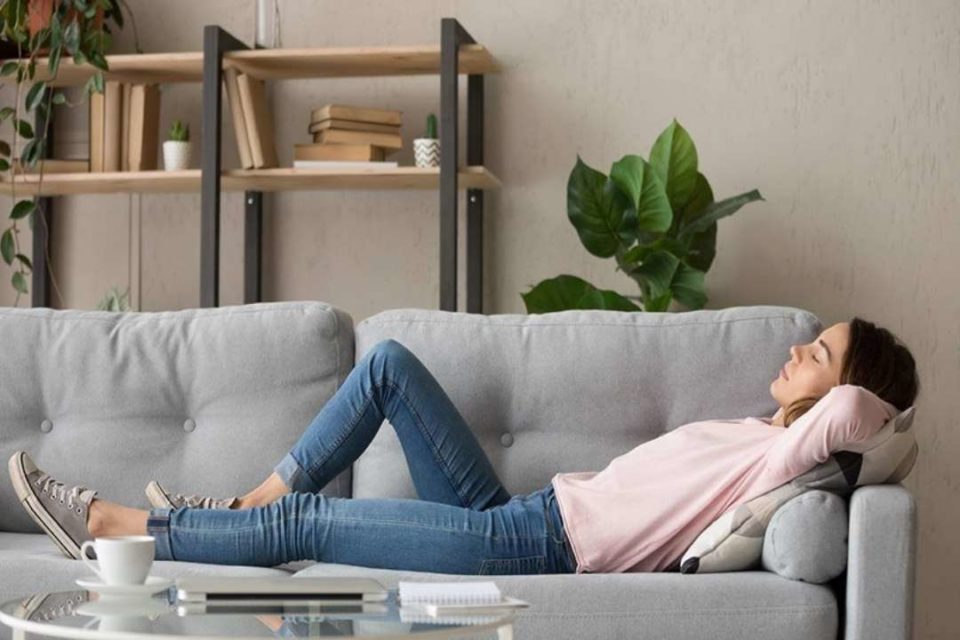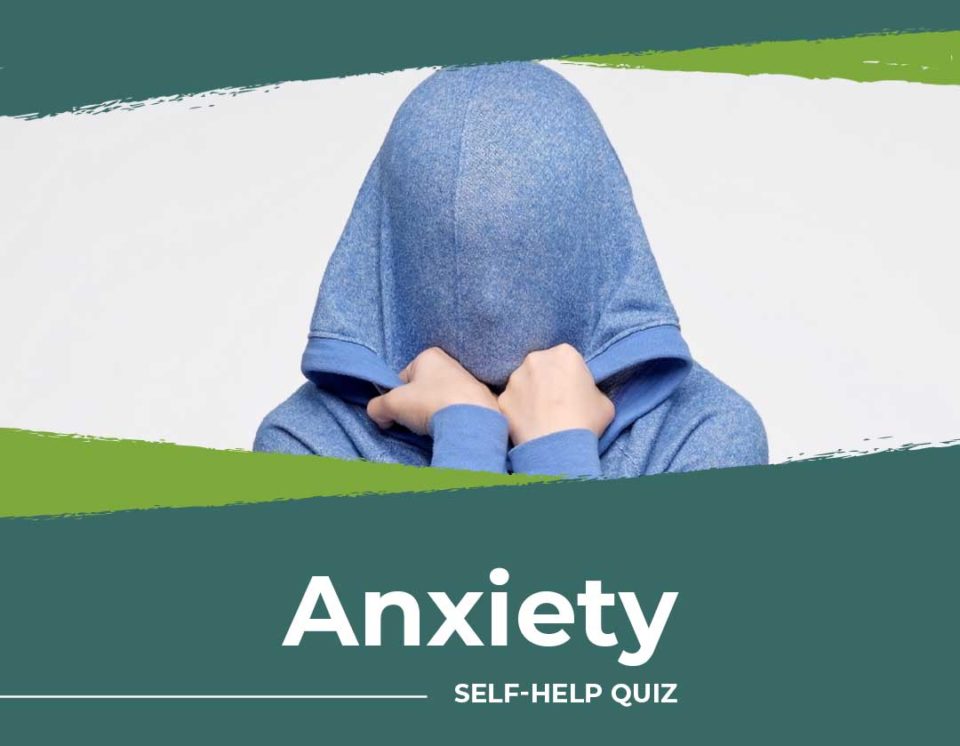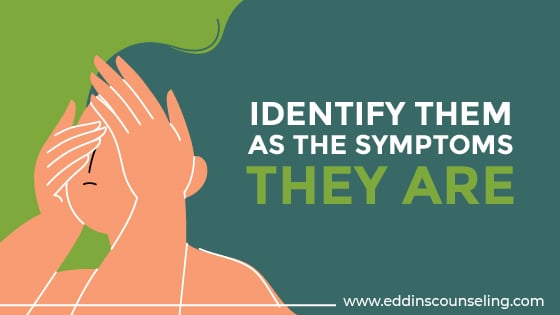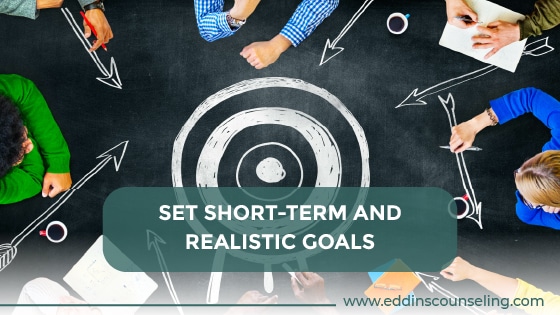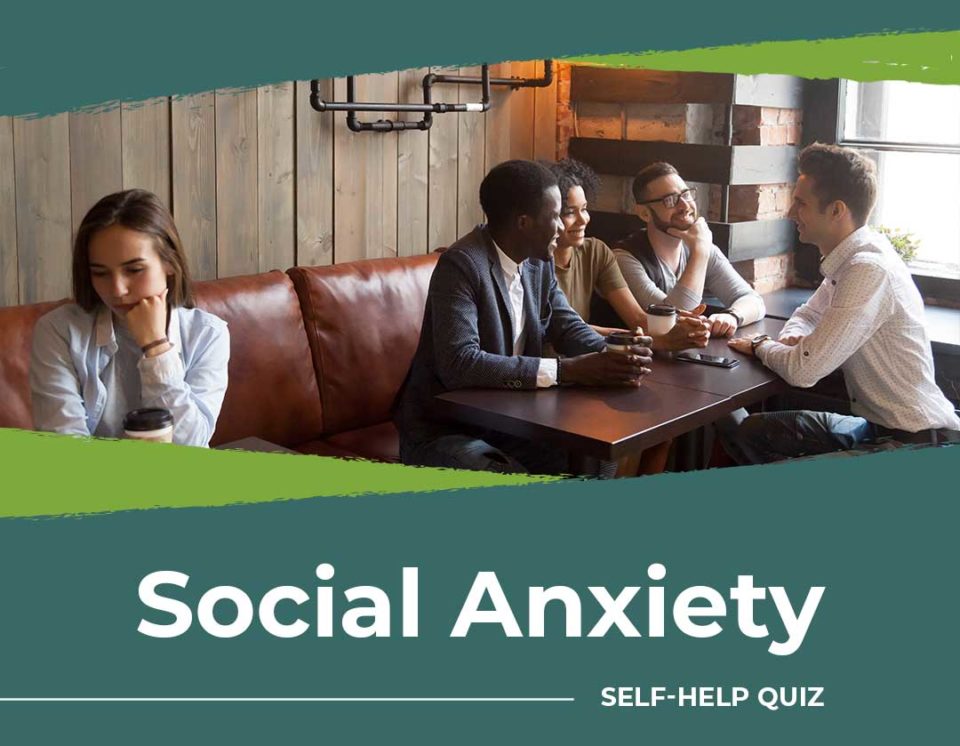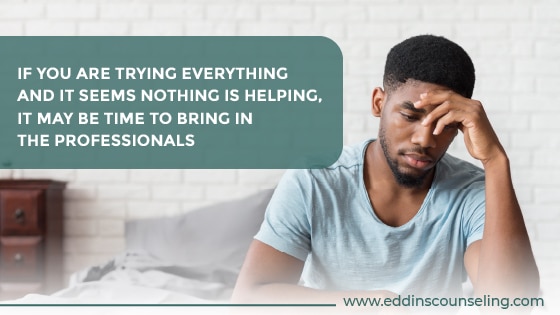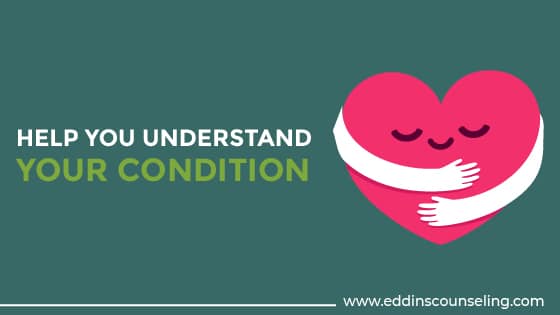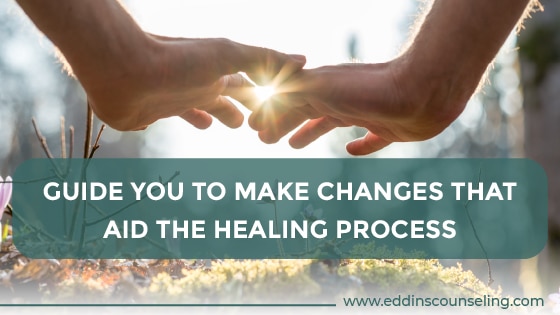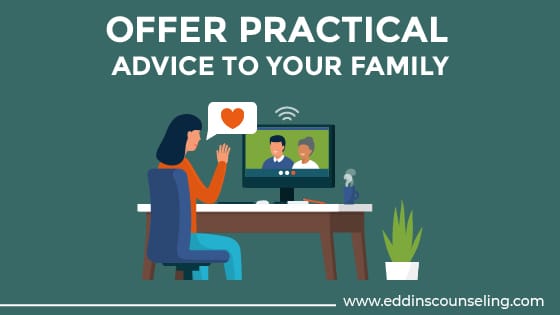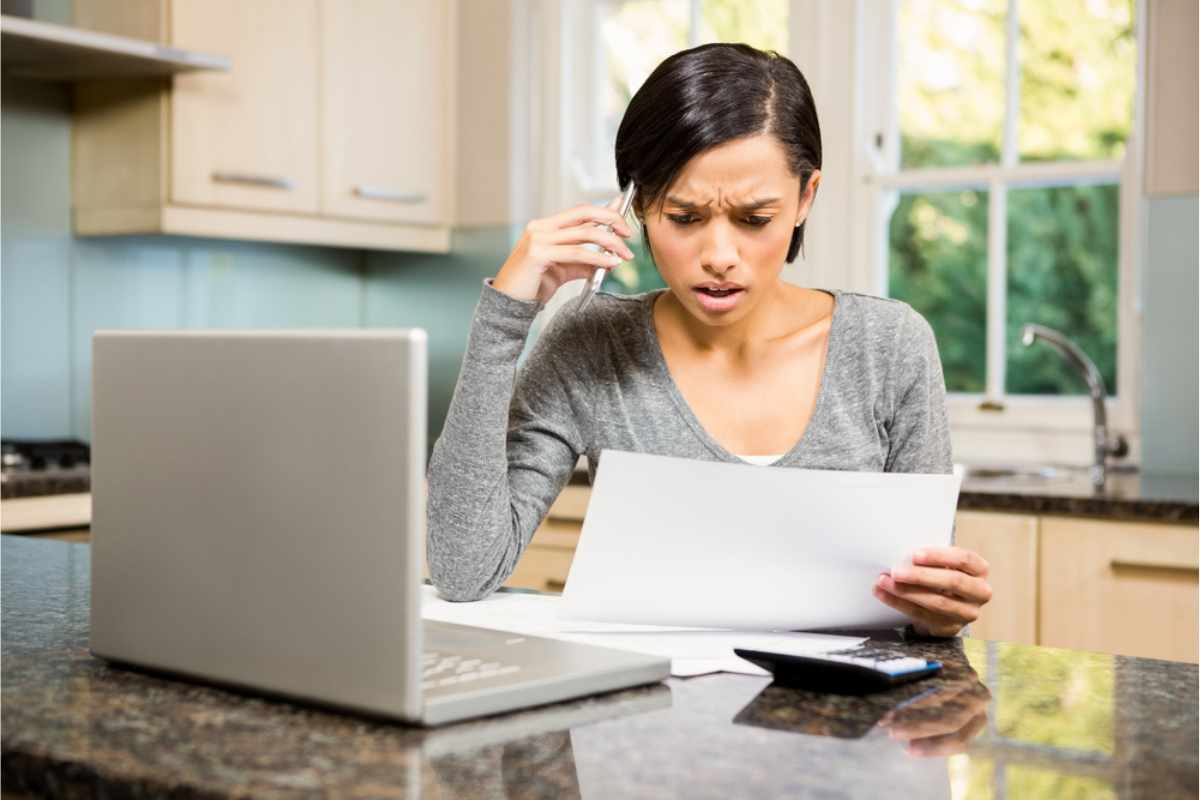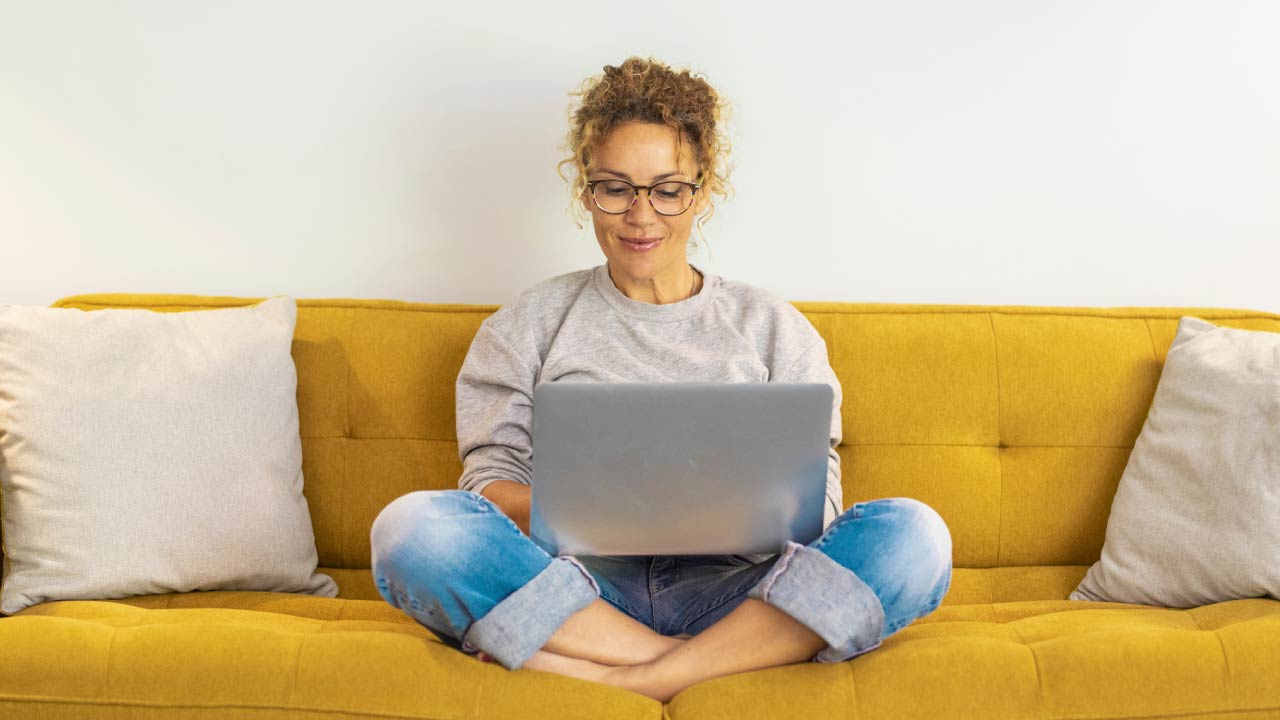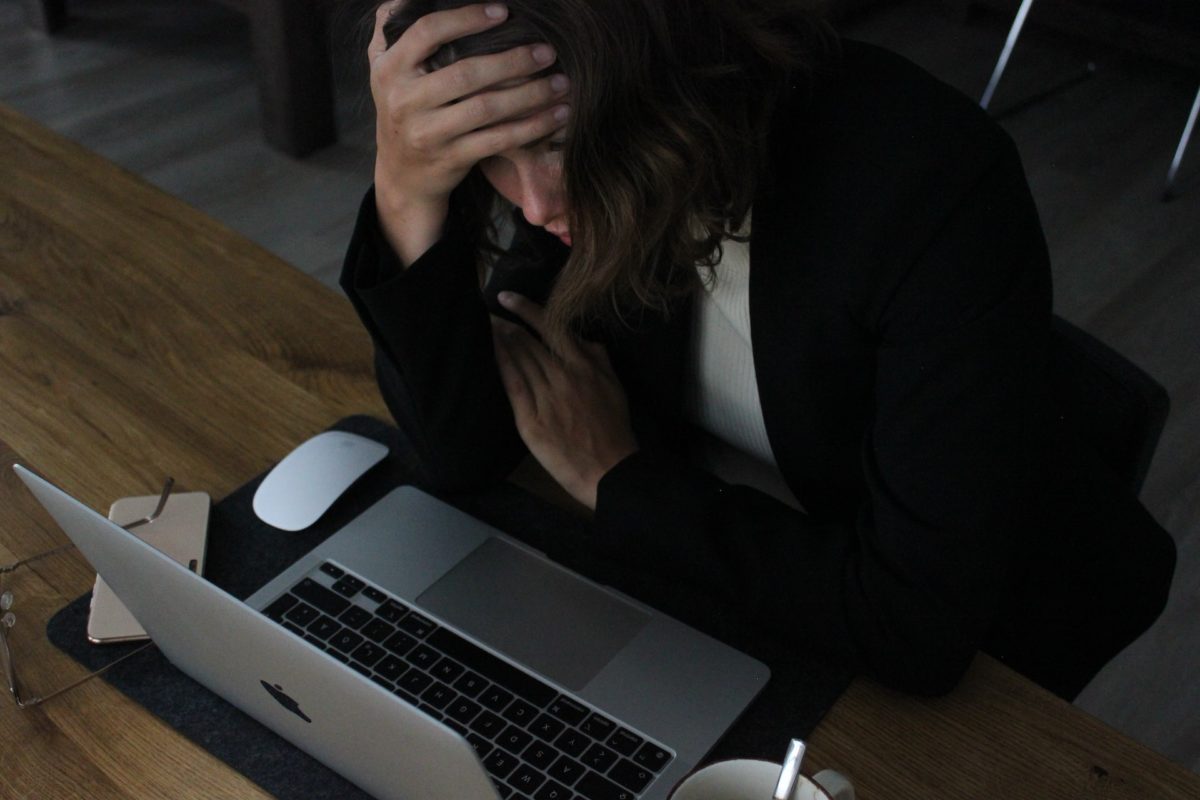August 2, 2021
Ways to Relax When Anxiety Won’t Let Go
Written by Rachel Eddins
Posted in Anxiety, Stress Management and with tags: mindfulness, self care, self-compassion
Sometimes, it’s hard to relax.
We have so much on our plates at any one time that your day could look like a collage of activities, tasks, and plans that you feel personally responsible for, which can be an incredible feeling. But what about when the day is over, and it’s time to wind down and your brain just… can’t?
You’re too caught up in your mind rehashing and reexamining your day, or you’re preparing your worst-case scenarios for tomorrow. Or what about those moments where you need to gear up and get focused, but you can’t stop thinking (overthinking) about that thing over there that has nothing to do with the task that lay before you?
Well, the answer could be anxiety, a monster that comes in many forms.
“Overthinking” is usually related to generalized anxiety disorder, which affects over 4% of the population, which is a lot more than that sounds. While generalized anxiety disorder doesn’t usually lead to panic attacks, the anxious feelings are very real even when you are aware they are irrational!
Generalized anxiety disorder can easily rattle you and make you feel like you’ve got to keep moving. It’s hard to settle down, and you may need ways to relax when feeling this way.
Do I Have Anxiety?
As mentioned above, generalized anxiety disorder is a mental health disorder often considered “mild” by professionals instead of a condition like clinical anxiety. But how can you tell if you are dealing with anxiety?
It depends on a few things, but anxiety is diagnosed through common symptoms, such as:
- Loss of focus
- Poor concentration
- Fatigue
- Irritability
- Insomnia
- Nausea
- Racing thoughts
- Out of control worry
- Procrastinating
- Obsessing
- Avoiding
None of these symptoms are easy to manage. They all make life challenging in their own ways.
But the last three on the list (procrastinating, obsessing, and avoiding) come with their own unique set of challenges.
Are you experiencing symptoms of anxiety? Take our anxiety quiz to learn more.
Procrastinating, Obsessing, or Avoiding
Where depression is an intense attachment to the past, anxiety keeps us tied to the future. We are very aware of what might happen, causing us to dread uncertainty, even though it’s a fact of life.
This paradox leads to:
- Feeling stuck in neutral
- Unwillingness to delegate or ask for help
- All-or-nothing/black-and-white thinking
- Being very good at conjuring up worst-case scenarios
- Negative predictions, in general
- Erratic self-image
When anxiety provokes procrastinating or obsessive behaviors, you become pretty adept at excuse-making. You may use these excuses to “explain” why things could never work, and therefore, the only “logical” decision is not even to try.
Dealing with anxiety can make you a master of disguising self-sabotage as self-care. At worst, we chalk up to perfectionism.
Another result is something called “analysis paralysis,” where we prepare and analyze something so much we get stuck and never act, never start.
If these feelings are familiar, please know that there is no need to shame yourself over them, as shame will represent cement that keeps you where you are because it convinces you that you are the problem.
Ultimately, you will have to take accountability for your actions, but shame doesn’t need to be a part of it. Instead, try finding ways to relax.
Settling down is the best thing you can do for yourself when you’re feeling incredibly anxious. So, how can you calm yourself when peaceful is the opposite of how you’re feeling?
Ways to Relax When Feeling Anxious
Those who need to relax the most are often the ones who rest the least.
Immensely few people allow themselves to be in the moment or clear their heads, so don’t beat yourself up over it. Just know that it’s worth learning a handful of anxiety relaxation techniques to have prepared for moments like this one.
But to be clear, anxiety disorders can’t be cured by relaxation techniques alone, but they can reduce the level of anxiety you experience, making it easier to cope overall.
Cognitive-behavioral therapy helps individuals with anxiety disorders and is widely known to do so. It is particularly effective in conjunction with anxiety relaxation techniques learned and practiced during therapy sessions.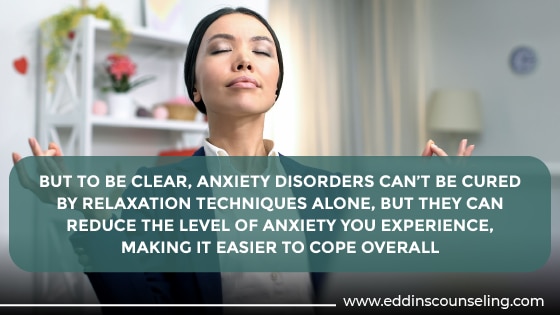
Get started on the road to wellbeing with some techniques right now.
1. Identify Them As the Symptoms They Are
Why? Naming these symptoms and connecting them to anxiety can often take away their power. You can separate yourself from them.
If you injured your knee, you wouldn’t be taken aback by a temporary limp. It’s a typical symptom.
With this in mind, it’s super helpful to identify procrastinating, obsessing, avoiding, and all the others as your norm for dealing with anxiety. They are not reasons to disparage yourself.
Try It: Rather, they are an opportunity to recognize and address a need for reflection and healing. So, next time you find yourself feeling unnecessarily irritated and avoidant of simple tasks, step back and see these symptoms for what they are.
2. Deep breathing
Why? For many of us, anxiety disconnects us from our bodies and, most certainly, from our breaths, resulting in shallow, quick breathing. We hyperventilate. To serve you best, you’ll have to practice, but healthy breathing is key to reducing anxiety and its symptoms, as deep breathing is a great way to relax and soothe your body.
Try it: Sit straight in your chair and place your arms on the armrests or in your lap. Take a deep breath, slowly, through your nose. Inhalation should take about six seconds. Hold for three seconds, then breathe out through your mouth (slowly, as if you’re going to whistle) for about seven seconds. Repeat ten times.
3. Set Short-Term and Realistic Goals
Why? View this sort of like hitting the reset button on one of your devices. Shut things down and try again with a new approach. Lowering the stakes has the potential to reduce anxiety. Attaining these more realistic goals has the potential to make procrastination a thing of the past.
Try it: Write down everything you hope to achieve, work towards, and dream about having/creating. Yes, everything. Once you have “brain dumped,” focus on the ones with either a deadline attached or hold more priority and list out steps to getting there or, at the very least, the steps you know you can take now.
For example, if you are trying to get a new job, perhaps you’ll list would have things like “fix resume,” “ask _____ for reference,” “update LinkedIn profile,” or whatever you decide needs doing. Writing these lists and breaking down goals visually can help clear up any confusion and give you a clear roadmap to success.
4. Massage away tension
Why? Our mental health is intertwined with our physical well-being. When we do things that relax our bodies, our minds are more likely to follow suit.
Try it: Make a warm heat wrap out of a hot, damp towel. Roll it up and wrap it around your neck and shoulders for about ten minutes. Or, get a tennis ball and place it between your back and the wall. Lean into it firmly for fifteen seconds. Keep moving the tennis ball to different spots on your back. I also lay down and roll on two tennis balls stuffed in a sock for lower back relief.
5. Embrace the Concept of Trial and Error
Why? Scientists don’t fear failure or worst-case scenarios. Their style is based on learning from mistakes and then coming back stronger. Take “failure” out of your vocabulary and replace it with “test,” “practice,” or even “progress” because that’s what it is.
Try it: Look back at your most recent failure and take a few deep breaths—focus specifically on what you learned. Try to see how it helped you in future situations because it very likely did.
6. Find Role Models to Inspire You
Why? A robust method for challenging a fear of failure is to learn from others. You aren’t alone, but anxiety will try its hardest to convince us we are.
Try it: Find stories of people who have dealt with anxiety. More specifically, seek out the biographies of those who have overcome the procrastinating, obsessing, or avoiding that anxiety induces.
7. Aromatherapy
Why? An excellent way to relax our brains is to distract them from our thoughts and anxiety through sensory stimulation.
Try it: You might not always be somewhere you can light a soothing scented candle, but aromatherapy can still work when you imagine yourself smelling the scent. You can also carry a small bottle of a pleasant-smelling essence. Basil, juniper, lavender, sandalwood, geranium, or rose are common scents associated with calm. Origins make a lotion you can carry with you to rub on your temples when feeling stressed. Essential oil diffusers can also be very soothing and come in travel sizes for the office or car with compact sizes for home use. I use mine every night to unwind from the day!
Wondering if you have social anxiety? Take our social anxiety test and find out.
8. Take Daily Tech Breaks
Why? It’s never been easier to procrastinate, obsess, or avoid. Besides the fact that most of us work extensively on a computer, we all carry around a mini-computer that is more than capable of holding our attention. Staring at a screen is considered normal and perhaps even a sign of “productivity,” but is no way to relax and our eyes, brains, and bodies weren’t made for that kind of work.
Try it: Take social media breaks and if you work on the computer, make sure to get up, walk around, and maybe even go outside and change your setting. Turn off your phone for a certain amount of time each day. Use that time to quiet the internal noise and make progress on your to-do list.
9. Meditation
Why? This technique is most effective if you commit to it. Fortunately, it’s not very hard.
Dedicate a few minutes to meditation daily. Daily meditation can change the neural pathways in your brain, which lessen the effects of stress on your mind and body.
Try it: Sit up straight and plant both your feet firmly on the floor. Close your eyes and repeat a mantra, out loud or just in your mind, whatever makes you feel more comfortable. You don’t have to stick with “om,” many people find it helpful to use a phrase like “I am at peace.”
Finding Ways to Relax, Getting Help
Millions of people all over the US are dealing with anxiety which makes a lot of life feel like an emotional roller coaster. Especially after COVID-19, anxiety levels have never been higher, and it’s getting harder and harder to find ways to relax.
So, if you are trying everything and it seems nothing is helping, it may be time to bring in the professionals. On the one hand, self-help techniques can do a lot for you, but depending on your circumstances, they may not reach the root causes.
On the other hand, anxiety counseling is designed to find and address underlying factors hindering your mental health and well-being.
5 Ways Anxiety Counseling Can Help You
You might be under the impression that things need to be really messed up before you need counseling, but that’s not true and is often why mental health issues become much, much worse. When you are dealing with anxiety and you can’t ever find helpful ways to relax, therapy may be the solution you’ve been looking for.
1. Help you understand your condition and identify its root causes
Working with a counselor allows you to access your inner world – your deepest feelings and thoughts that anxious thoughts and feelings often hide. This enables you to identify the causes of your condition and how it developed.
Often unhealthy thoughts, beliefs, actions, and behaviors lie at the root of anxiety. Counseling will enable you to become comfortable with these underlying issues and teach you to face them with a calm mind.
Consider this for a moment. How would a level state of mind improve the quality of your life?
2. Prepare a recovery plan specifically for you and your circumstances
You must address all issues thoroughly so that your recovery will be complete and lasting. A counselor can provide assistance and insight for spotting potential obstacles and roadblocks that could make your recovery difficult.
They can also supply you with the tools and strategies to overcome those obstacles and remain on track with your goals.
3. Guide you to make changes that aid the healing process
Anxiety counseling addresses your overall lifestyle and assists you in changing your behaviors. To aid the therapeutic process, a counselor may focus on such areas as nutrition, physical activity, social connections, and restful sleep.
You will learn how to respond to anxiety with calm and peace and handle difficult situations in a more relaxed manner. You will begin thinking and believing more logically, rationally, and clearly, rather than letting negative thoughts and feelings control you.
Instead of avoiding certain situations and people, you will become comfortable with them. And most importantly, you will develop a more balanced sense of self – becoming confident, self-accepting, and happy.
4. Render continuous and personalized support
Step by step, a qualified anxiety counselor in Houston can energize you to build and keep the momentum to move forward. Any questions you may have – they will listen and give you answers without passing judgment.
You can be sure of their ongoing support and emotional reassurance. They want to see you heal, reach the end of that roller coaster, get off, and finally live your life.
5. Offer practical advice to your family
Those living with you or close to you must understand the gravity of your condition. A counselor can impart valuable knowledge about dealing with anxiety to your family.
They can explain to them when to be patient and apply some pressure to keep you going. They may also provide practical advice on how else your family can assist you.
All this doesn’t have to take extensive sessions. But equipping family members with sound knowledge can significantly improve your recovery process.
Find Relief, Don’t Go It Alone.
Sometimes anxiety acts as a gatekeeper, keeping you alone, trapped in your mind. No matter what level of anxiety you are dealing with, if you are just looking for ways to relax and ease your mind, counseling can and will help you. 
Next Steps
Houston therapists can help you work on symptoms of generalized anxiety disorder, address the root causes of your mental illness, and learn how to relax. Our services are available in-person in Houston, TX and online in over 10 states across the US.
Contact us to find out how we can help. To schedule an appointment, give us a call at 832-559-2622 or schedule an appointment online.
5 Ways to Reduce Anxiety
Get instant access to your free ebook.
Grounding & Self Soothing
Get instant access to your free ebook.
Create Healthier Thoughts & Feelings
Get instant access to your free ebook.
Why You Feel This Way
Get instant access to your free ebook.

